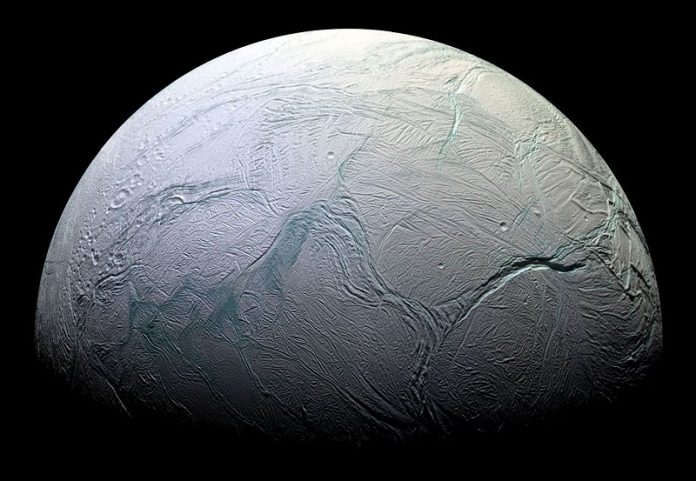
Scientists searching for life beyond Earth often look to ocean worlds like Enceladus, one of Saturn’s icy moons.
Enceladus has a vast ocean beneath its frozen surface, and it even sprays water into space through cracks in its ice.
This makes it an exciting place to search for signs of alien life. However, a new study suggests that finding evidence of life in these extraterrestrial oceans may be more difficult than expected.
Published in Communications Earth and Environment, the study reveals that Enceladus’ ocean may have layers that slow down the movement of material from the deep sea to the surface.
This means that if life exists in the depths, its chemical traces, microbes, or organic material could break down or change before reaching the surface, making them harder for spacecraft to detect.
Flynn Ames, the study’s lead author from the University of Reading, explains:
“Imagine trying to find deep-sea life on Earth by only testing water from the ocean surface. That’s the challenge we face with Enceladus—but with an ocean that behaves in ways we don’t fully understand.”
The research suggests that Enceladus’ ocean layers act like oil and water in a jar, preventing deep-sea material from mixing easily with the upper layers. Previously, scientists thought that material from the ocean floor could rise to the surface within a few months. But this new study shows that it could actually take hundreds or even thousands of years—if it even makes it to the surface at all.
This could mean that past space missions, like NASA’s Cassini spacecraft, may have missed crucial evidence of life. Cassini flew through Enceladus’ water plumes and detected organic molecules, but if deeper signs of life are stuck far below the ice, future missions will need to find new ways to reach them.
The study used computer models similar to those used for studying Earth’s oceans, and its findings could have major implications for the search for alien life. Scientists believe that many other icy moons and distant exoplanets may have hidden oceans beneath their surfaces, but if those oceans behave like Enceladus’, signs of life might remain trapped too deep to detect.
Even on Enceladus, where the ocean conveniently sprays into space, the long journey from the depths to the surface may erase the best evidence of life. This means that future missions will need to dig deeper—literally—to find answers.



